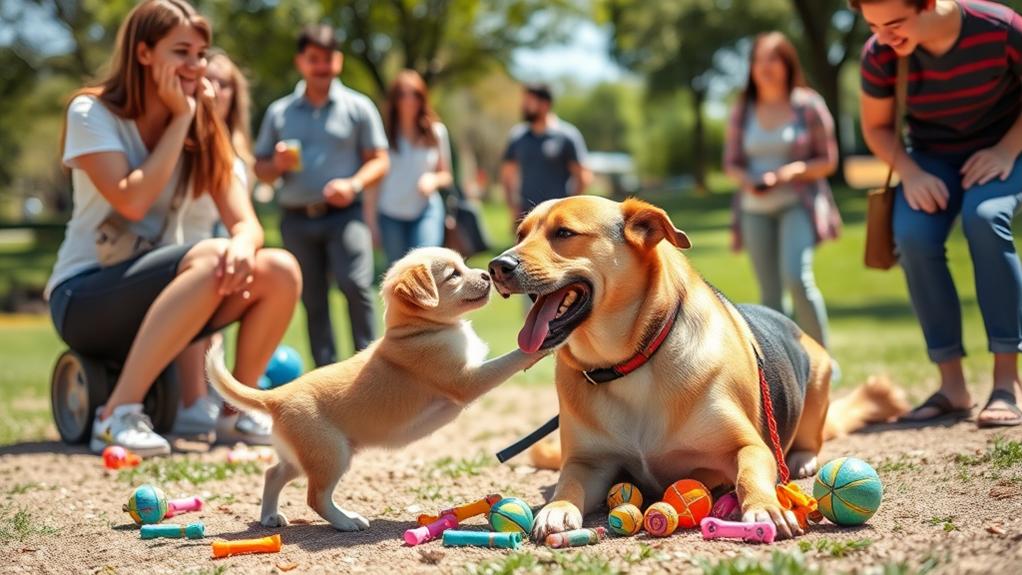When you bring a puppy into your home, socializing them with both dogs and people is vital for their development. You'll want to start early and gradually introduce your puppy to various environments and experiences. Using positive reinforcement can also make a significant difference in fostering calm behavior. However, being aware of your puppy's body language during interactions is just as important. This awareness can help you navigate potential challenges effectively. So, what are the specific strategies you can employ to guarantee a smooth socialization process?
Start Early and Gradually
Starting early and gradually is key to socializing your puppy effectively. The first few months of your puppy's life are critical for forming positive associations with new experiences.
Begin by introducing them to different environments, sounds, and people. Don't overwhelm them, though; take it slow and let them acclimate at their own pace.
Try to expose your puppy to various surfaces, like grass, concrete, and gravel, to help them adapt to different textures. Gradually introduce them to new experiences, like car rides or trips to the vet, to build their confidence.
Socialize with other vaccinated puppies as well, as this can help them learn proper play behavior.
Make sure to involve diverse groups of people—kids, elderly, and individuals wearing hats or sunglasses—to help your puppy get accustomed to a variety of appearances and behaviors.
Keep sessions short and positive; you want to create a lasting impression, not a negative one.
Positive Reinforcement Techniques
In your puppy's journey to becoming a well-adjusted adult dog, positive reinforcement techniques play a vital role.
These methods help your puppy associate good experiences with socializing, making them more confident and friendly. Instead of punishing undesirable behavior, you'll reward the actions you want to encourage. This fosters a trusting relationship between you and your puppy.
Here are some effective positive reinforcement techniques to incorporate:
- Treats: Use small, tasty treats to reward your puppy when they greet other dogs or people calmly.
- Praise: Give enthusiastic verbal praise when your puppy behaves well. Your excitement will motivate them!
- Playtime: Integrate play as a reward. If your puppy interacts positively, let them enjoy their favorite toy or game.
- Consistency: Be consistent with your rewards. If they perform a desired behavior, always reward them so they learn to repeat it.
Monitor Interactions Closely
While socializing your puppy is essential, monitoring their interactions closely guarantees safety and positive experiences. You want to make sure that your puppy is comfortable and having fun while meeting new dogs and people.
Keep a watchful eye on their body language—look for signs of stress, fear, or aggression, such as growling, barking, or a tucked tail.
If you notice any negative behavior, it's vital to intervene calmly and redirect your puppy's attention to a more positive activity, like a game or a treat. This helps them associate social interactions with good experiences.
When introducing your puppy to other dogs, choose well-mannered, friendly dogs that are known to be good with puppies.
Supervise their playtime closely, as rough play can sometimes escalate quickly. If the interaction gets too intense, separate them before any issues arise.
Conclusion
Socializing your puppy is like planting a seed; the earlier you start, the stronger and more resilient it'll grow. By beginning early, using positive reinforcement, and closely monitoring interactions, you'll help your pup become a well-adjusted and confident dog. Remember, patience is key, and every positive experience builds a foundation for a happy, social life. So, get out there and let your puppy explore the world—each outing is an opportunity for growth and connection!



